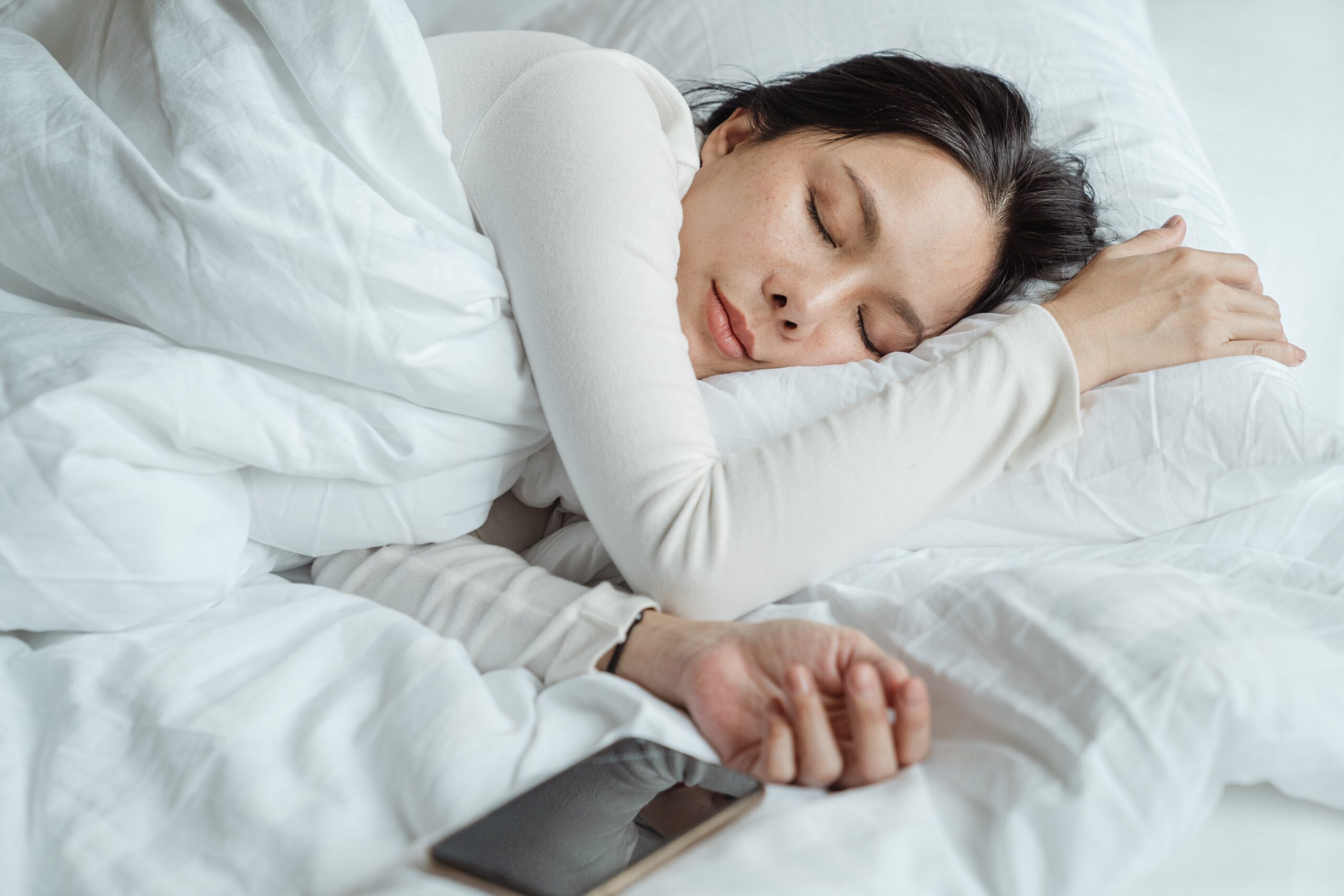Sleep hygiene for deeper sleep
This article explores 6 simple tips you can implement starting today to help you get a better nights sleep.
1. Set a sleep schedule
Set and stick to a sleep schedule that works for you that allows for 7-9 hours of sleep. Go to bed and wake up at the same time every day, including weekends to help your circadian rhythm and get your body into a natural routine.
2. Be mindful of what you eat and drink
Avoid going to bed hungry or overly full. It helps to not eat a large dinner within a couple of hours before going to sleep as indigestion may keep you up.
Nicotine and caffeine can also interrupt sleep due to their stimulating effects as well as alcohol, even if it does make you feel tired initially.
3. Create a restful environment
Keep your bedroom cool, dark, quiet and tidy.
Being exposed to light in the evening, especially the blue light emitted from electronic devices can disrupt melatonin production and make it more difficult to fall asleep.
Having a clean, tidy space has been found to help with relaxation and sleep quality. You should also consider having black-out blinds or thick curtains to keep external light out, and have a fan for better temperature control.
Doing calming activities before bed such as taking a bath, reading, meditating, or doing some colouring can also promote better sleep.
4. Avoid daytime naps
Where possible limit naps in the day time to 1 hour or less, and avoid napping late in the day.
5. Stay physically active
Exercising regularly can help you get deeper sleep, however being active too close to bedtime can give you lots of energy making it difficult to then go to sleep.
6. Manage stress
Getting your worries and stress out of your mind before bed through a ‘mind dump’ or journaling can help you get to sleep faster by not getting kept up by overthinking.




